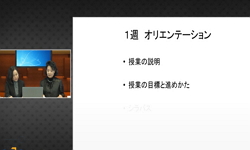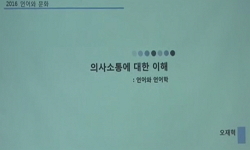Language and culture are inseparably interrelated. Korean people have developed particular discourse styles that reflect the his torical, cultural and social phenomena and have shared the meaning within the Korean speech community. The Korean traditio...
http://chineseinput.net/에서 pinyin(병음)방식으로 중국어를 변환할 수 있습니다.
변환된 중국어를 복사하여 사용하시면 됩니다.
- 中文 을 입력하시려면 zhongwen을 입력하시고 space를누르시면됩니다.
- 北京 을 입력하시려면 beijing을 입력하시고 space를 누르시면 됩니다.
Collectivistic Aspects of Korean Discourse Style : Analysis from Sociocultural Perspectives = 한국어에 나타난 집산주의적 특성 : 사회문화적인 관점에서의 분석
한글로보기부가정보
다국어 초록 (Multilingual Abstract)
Language and culture are inseparably interrelated. Korean people have developed particular discourse styles that reflect the his torical, cultural and social phenomena and have shared the meaning within the Korean speech community. The Korean traditional value of collectivism places importance on maintaining group harmony, preserving traditions, and respecting authority rather than expressing individual opinions. The emphasis of the harmonious relationship in Korean traditional society has resulted in collectivism, high-context culture and high self-monitoring culture. Korean discourse styles are constantly influenced by these collectivistic characteristics shared within Korean society. Reflecting the collectivistic features of Korean culture, the pronoun 'we' has developed a special usage beyond marking a simple plural and the mechanism to express one's thoughts and feelings became indirect and digressive. Koreans realized by experience how to negotiate and communicate with nonverbal signals. The terms for social relationship were highly developed because they were expected to speak according to their relational status.
This paper focused on what social and cultural situations have influenced certain discourse styles of Korean language and tried to analyze and explain the collectivistic features of Korean discourse styles according to the sociocultural and contextual frameworks.
국문 초록 (Abstract)
한국어는 오랜 세월동안 한국고유의 역사와 문화 그리고 사회적인 현상을 반영하며 언어 집단 내에서 의미를 공유할 수 있는 독특한 언어 양식으로 발전되어왔기 때문에 외국어로서 한국어...
한국어는 오랜 세월동안 한국고유의 역사와 문화 그리고 사회적인 현상을 반영하며 언어 집단 내에서 의미를 공유할 수 있는 독특한 언어 양식으로 발전되어왔기 때문에 외국어로서 한국어를 배우는 외국의 학생들이 한국문화에 대한 진정한 이해와 통찰 없이 단지 한국어의 규칙에 대한 것만 학습한다면 그것은 불완전한 언어학습이라고 할 수 밖에 없을 것이다. 한국어를 배운다는 것은 한국어의 규칙뿐만 아니라 한국어가 사용되는 한국의 사회문화적 규범도 함께 학습하는 것을 의미하기 때문에 한국어 교육에 있어서 문화교육은 지엽적인 문제가 아니라 오히려 의미 있는 의사소통능력을 향상시키는데 있어서 핵심적인 요소라고 할 것이다. 이 연구는 이러한 한국인의 독특한 언어현상을 사회 문화적인 맥락에서 살펴보았다. 이 연구에서는 한국인의 담화에 나타나는 집산주의 지향적 문화의 영향을 분석하여 언어습관과 문화적, 사회적 습관과의 관련성을 조사 분석하고 있으며 한국인의 언어습관으로서 대명사 '우리' 사용, 간접적이며 완곡한 언어습관, 암시적이며 비언어적 언어수단의 사용, 사회적 상대적 관계에 예민한 점 등을 분석하여 한국인의 언어사용이 개인중심 문화보다 집산주의 지향적이고 사회적 화목을 중시하는 문화에 영향을 받고 있음을 살펴보고 있다.
목차 (Table of Contents)
- Ⅰ. Introduction
- Ⅱ. Theoretical Background
- Ⅲ. Collectivistic Aspects of Korean Traditional Culture
- Ⅳ. Collectivistic Aspects of Korean Discourse Style
- Ⅴ. Conclusion
- Ⅰ. Introduction
- Ⅱ. Theoretical Background
- Ⅲ. Collectivistic Aspects of Korean Traditional Culture
- Ⅳ. Collectivistic Aspects of Korean Discourse Style
- Ⅴ. Conclusion
동일학술지(권/호) 다른 논문
-
- 韓南大學校 敎育硏究所
- 배천웅
- 2010
-
- 韓南大學校 敎育硏究所
- 심상보
- 2010
-
Numerical verification of solutions for Signorini problems using Newton-like method
- 韓南大學校 敎育硏究所
- Cheon Seoung Ryoo
- 2010
-
러시아 7학년 기하학 교과서의 내용 및 연습문제 분석 연구
- 韓南大學校 敎育硏究所
- 한인기
- 2010





 RISS
RISS






